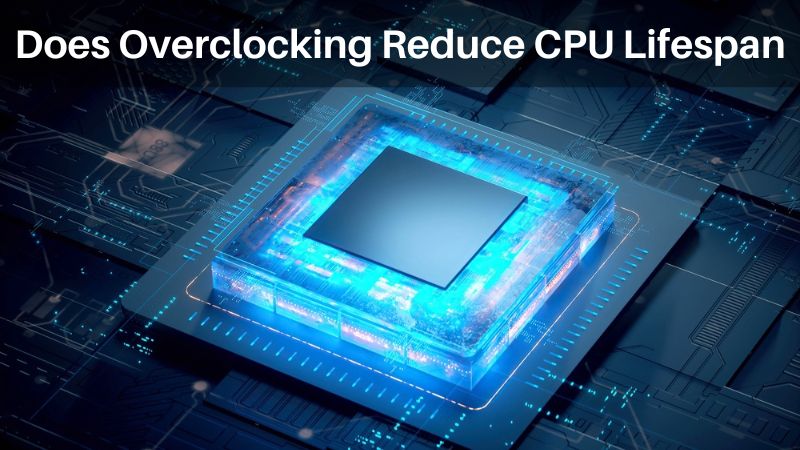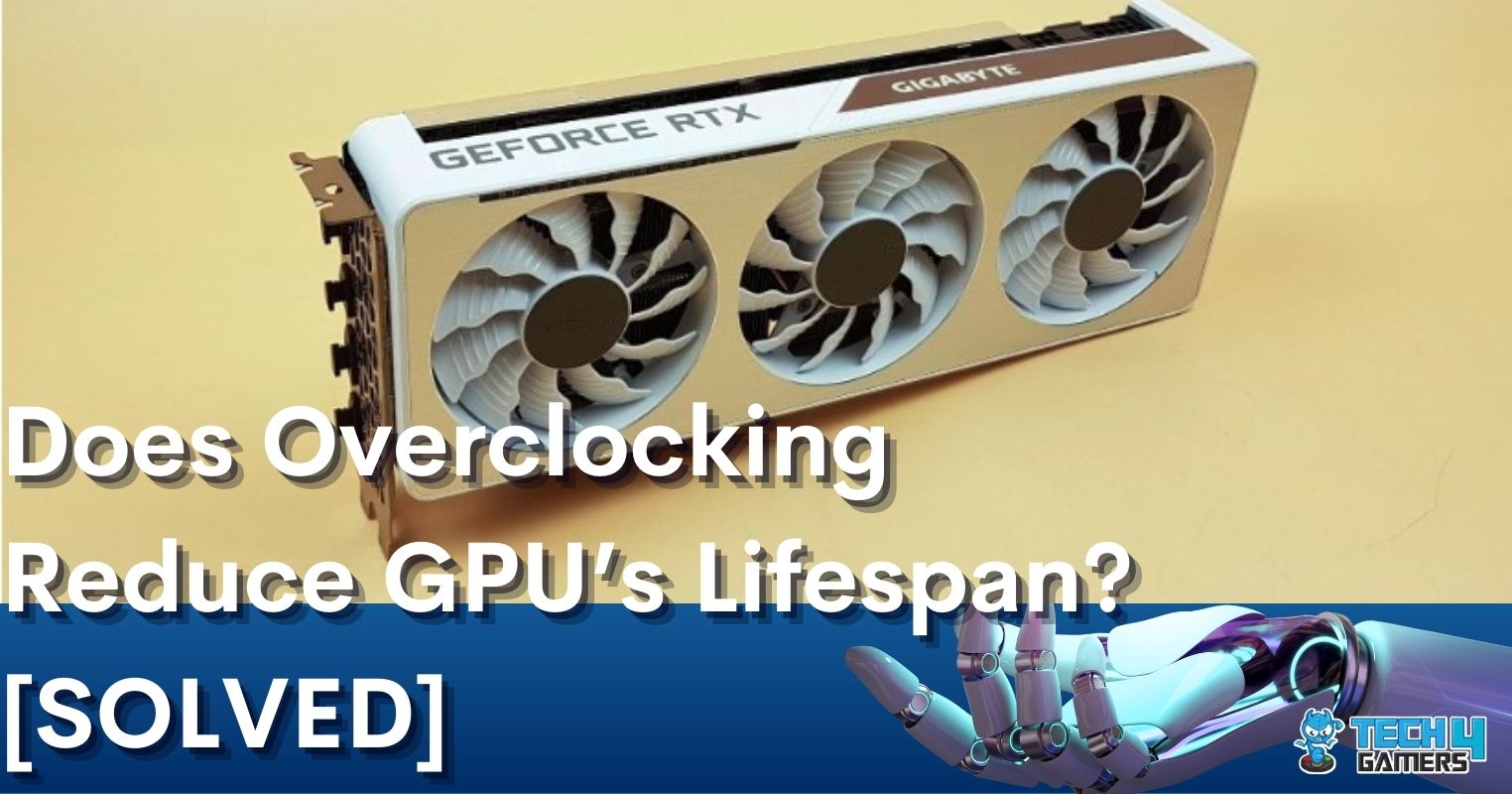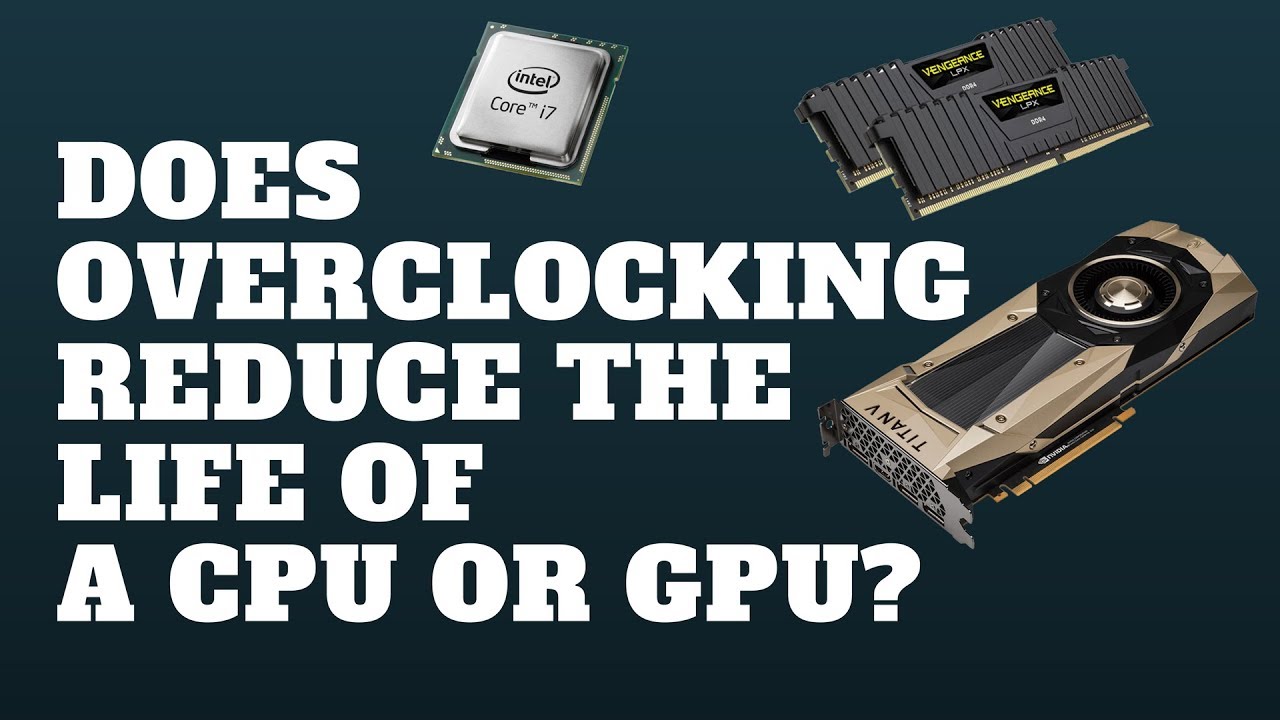Overclocking can reduce GPU lifespan due to increased stress and heat generated during operation. Research indicates that excessive overclocking may lead to hardware degradation over time.
Overclocking has become a popular practice among PC enthusiasts seeking to maximize performance from their graphics processing units (GPUs). However, there is often a trade-off between increased performance and the potential impact on hardware longevity. By pushing a GPU beyond its factory settings, users risk subjecting the component to higher temperatures and stresses which can accelerate wear and tear.
While moderate overclocking may not pose significant risks, prolonged and extreme overclocking can lead to reduced lifespan and potential performance issues. Understanding the balance between performance gains and the impact on hardware durability is crucial for users deciding whether to overclock their GPU.

Credit: www.reddit.com
The Impact Of Overclocking On Gpu Lifespan
Overclocking has been a popular method among gaming enthusiasts to boost their GPU performance, but it raises concerns about the overall longevity of the graphics card. While overclocking can lead to improved gaming experiences, it is essential to understand the impact it has on the lifespan of your GPU. In this article, we delve into the factors that determine GPU lifespan, the effects of overclocking on GPU components, and how to ensure the optimal longevity of your graphics card.
Factors That Determine Gpu Lifespan
Several factors play a crucial role in determining the lifespan of a GPU. These factors include:
- Temperature management
- Power delivery
- Quality of components
- Usage patterns
The Effects Of Overclocking On Gpu Components
When a GPU is overclocked, it operates at higher frequencies than its factory settings. This leads to increased heat generation and power consumption, putting additional stress on the GPU components. Over time, this can result in:
- Reduced stability
- Increased thermal wear
- Shortened lifespan of electrical components
Does Overclocking Actually Reduce Gpu Lifespan?
Overclocking, a popular practice among enthusiasts, raises concerns about its impact on GPU lifespan.
Research And Studies On Overclocking And Gpu Lifespan
Studies have shown varied results on the effect of overclocking on GPU lifespan.
Some research suggests that mild overclocking may not significantly reduce GPU longevity.
Real-world Examples And User Experiences
In real-world scenarios, many users report no noticeable decrease in GPU lifespan after overclocking.
Proper cooling and maintenance can help mitigate any potential negative effects.
Tips For Safely Overclocking Your Gpu
Overclocking your GPU can improve performance, but it’s important to consider the potential impact on its lifespan. By following these tips, such as monitoring temperatures and gradually increasing clock speeds, you can safely overclock your GPU and minimize the risk of reducing its lifespan.
Finding The Optimal Clock Speed
Gradually increase clock speed to test stability and performance.
Monitoring Temperatures And Voltages
Regularly check GPU temperatures and voltages to prevent overheating.
Using Proper Cooling Solutions
Invest in quality cooling solutions to maintain optimal GPU temperature.
Avoiding Extreme Overclocking
Avoid pushing GPU beyond safe limits to prevent damage.
Regular Maintenance And Cleaning
Clean GPU regularly to ensure optimal performance and longevity.

Credit: www.electronicshub.org
Factors To Consider Before Overclocking Your Gpu
Before overclocking your GPU, it’s important to consider factors like the potential reduction in lifespan. Overclocking can put additional stress on your graphics card, leading to increased heat generation and shorter overall longevity. However, with proper cooling and cautious adjustments, you can mitigate these risks and still enjoy improved performance.
Factors to Consider Before Overclocking Your GPU Purpose and Usage of the GPU Before diving into overclocking, assess the primary purpose and typical usage patterns of your GPU. Determine if your activities demand enhanced graphical performance, such as gaming, video editing, or 3D rendering. GPU Model and Manufacturer Guidelines Refer to the model specifications and guidelines provided by your GPU manufacturer. Ensure your device is designed to handle overclocking and is compatible with the desired performance enhancements. Heat Dissipation and Cooling System Evaluate the effectiveness of your GPU’s existing cooling system. Superior heat dissipation is crucial for maintaining optimal operating temperatures, safeguarding the longevity of your GPU. Power Supply and Energy Consumption Confirm that your power supply unit can accommodate increased energy demands resulting from overclocking. Inadequate power supply could lead to instability and potential hardware damage. Risk vs. Reward Analysis Carefully weigh the potential performance gains against the associated risks. While overclocking may yield improvements, it also carries the possibility of reduced lifespan and potential hardware failure. — Remember to always consider the purpose, usage, and manufacturer guidelines of your GPU. Evaluate the effectiveness of your cooling system and power supply. Weigh the rewards against potential risks.
Credit: tech4gamers.com
Frequently Asked Questions Of Does Overclocking Reduce Gpu Lifespan
Does Overclocking Reduce Gpu Lifespan?
Overclocking can decrease the lifespan of your GPU. By increasing voltage and clock speeds, you are pushing the hardware beyond its intended limits, which can lead to increased heat and potential damage to the components. However, with proper cooling and monitoring, you can minimize the risk and enjoy the increased performance.
Conclusion
Overclocking can potentially reduce GPU lifespan due to increased heat and stress. However, with proper cooling and voltage adjustment, the impact can be minimized. It’s crucial to weigh the performance benefits against potential risks and consider the longevity of the GPU.
Ultimately, responsible and cautious overclocking practices can help maintain the GPU’s lifespan.


0 comments